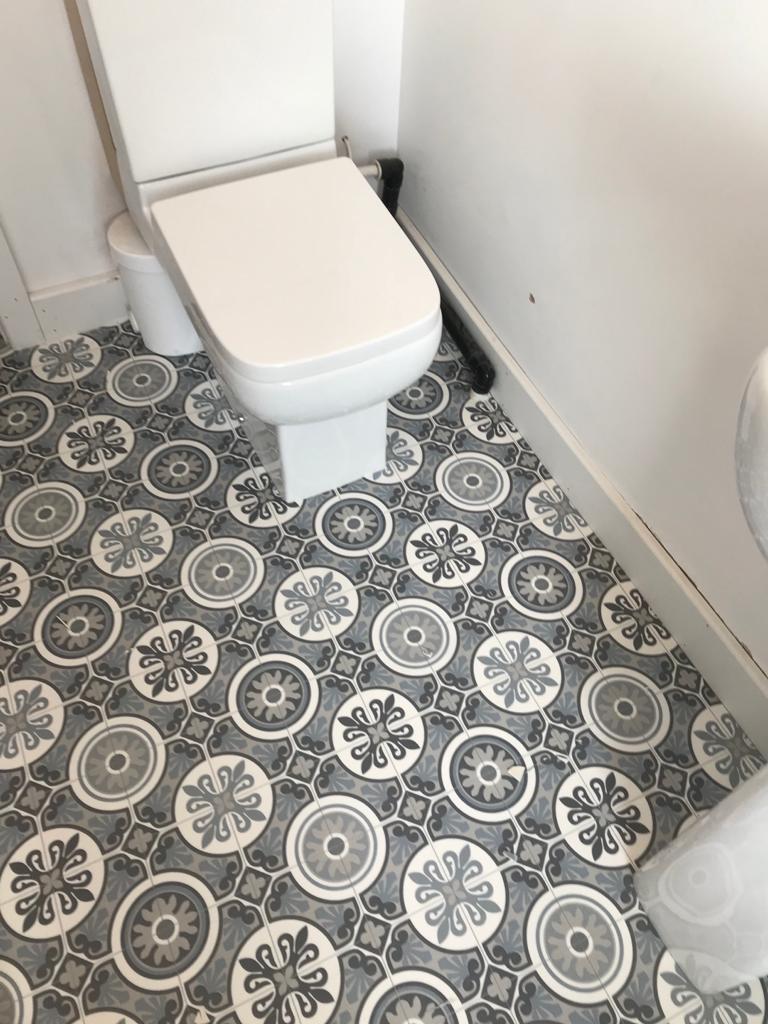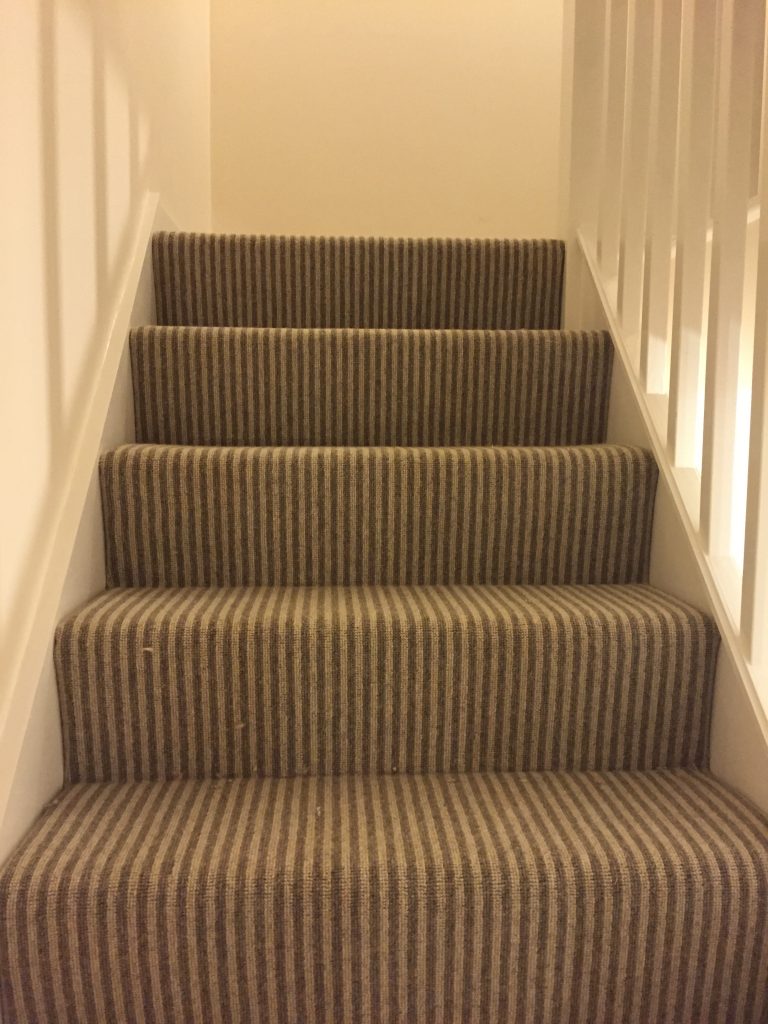As a homeowner, you're likely aware that there are many factors that can impact the sale value of your home. One factor that is often overlooked is how flooring impacts your home's sale value. Believe it or not, the flooring you have can significantly impact your home's sale value. In this article, we'll explore how different styles of flooring can affect valuation, and what you can do to maximize your home's value.
Carpet is a popular choice for homeowners because it's soft, warm, and comfortable to walk on. However, carpet can also be a double-edged sword when it comes to resale value. On the one hand, a high-quality, well-maintained carpet can be an attractive selling point for potential buyers, especially if it's in a bedroom or living room. On the other hand, carpet can also be a turnoff for some buyers, particularly if it's old, stained, or has an unpleasant odor.
If you have carpet in your home and you're considering selling it, it's important to take care of any issues that might be turning off buyers. This might mean hiring a professional carpet cleaner to get rid of any stains or odors, or even replacing the carpet entirely if it's in poor condition. People are often put off by carpets in bathrooms; this was once the norm, but these days it is not common, and people prefer a more water-resistant flooring like tile, vinyl, or laminate.

Hardwood flooring is one of the most popular flooring choices among homeowners, and for good reason. Hardwood floors are durable, long-lasting, and can add a touch of elegance and sophistication to any room. They're also relatively easy to clean and maintain, which can be a big selling point for buyers, especially if they have children and pets.
If you have hardwood floors in your home, you're in luck when it comes to home value. Hardwood floors are one of the most sought-after features among homebuyers, and they can significantly increase the value of your home. However, it's important to keep in mind that not all hardwood floors are created equal. High-quality hardwood floors that have been well-maintained will have a greater impact on your home's value than floors that are in poor condition or made from a cheaper type of wood. Installing hardwood flooring can be pricey, and you can achieve a similar look with other products that look just as good aesthetically.
Laminate flooring is great for people who want the look of hardwood floors without the high price tag. They are made from synthetic materials and are designed to look like hardwood, stone, or tile. While laminate flooring can be a cost-effective and attractive option for some homeowners, it can also be a liability when it comes to the sale price.
If you have laminate flooring in your home and you're considering selling it, it's important to make sure it's in good condition. This might mean replacing any damaged or worn-out planks, or even replacing the entire floor if it's in poor condition. You may also want to consider upgrading to a higher-quality type of laminate flooring that is more durable and long-lasting.
Vinyl flooring is good in areas where moisture is a concern. They are easy to clean and maintain, and they're often more affordable than other types of flooring. It can be a great way to revamp an old floor at a low cost.
Vinyl flooring can be an attractive selling point for buyers, particularly if it's in a high-moisture area like a bathroom or kitchen. If you have vinyl flooring in your home and you're considering selling it, it's important to make sure it's in good condition.
This might mean replacing any damaged or worn-out planks, or even replacing the entire floor if it's in poor condition. You may also want to consider upgrading to a higher-quality type of flooring that is more durable and long-lasting.

Tile flooring is now used throughout the home in the UK; it was once only used in bathrooms and kitchens, but we are adapting more to having tiling throughout the ground floor and using underfloor heating or rugs in the cooler months to keep them warm underfoot. They can make a home look very luxurious. It comes in a wide variety of styles, colours, and patterns, which can allow you to customize the look of your home to your own unique style.
However, like any flooring option, it can also have its drawbacks. One of the main issues with is that it can be prone to cracking or chipping over time, which can be a turnoff for buyers. Additionally, some types of tile flooring can be cold and hard underfoot, which may not be appealing to all buyers.
If you have tile flooring in your home and you are selling it, it's important to make sure it's in good condition. This might mean replacing any cracked or chipped tiles, or even replacing the entire floor if it's in poor condition. You may also want to consider adding area rugs or other soft furnishings to help make the space feel more inviting and comfortable.
Now that we've explored how different types of flooring can impact the value of your home, let's take a look at some strategies you can use to maximize your home's value and get the most from your sale and the highest price from the estate agents.
Choosing the right type of flooring is crucial when you're looking to maximize your home's sale value. It's important to consider factors such as durability, maintenance requirements, and aesthetic appeal. Hardwood flooring is generally considered to be the most attractive option for homebuyers, but it can also be the most expensive. If you're on a budget, laminate or vinyl flooring can be a more cost-effective alternative. Carpet is still a popular option, but be sure to choose a high-quality, well-maintained carpet that's free of stains and odours.

No matter what type of flooring you have in your home, it's important to keep it in good condition. This means cleaning it regularly, repairing any damage as soon as it occurs, and replacing it if it's in poor condition. By taking good care of your flooring, you can help ensure that it has a positive impact on the resale value of your home.
When it comes to flooring, it's often best to stick with neutral colors and styles that will appeal to a wide range of potential buyers. This might mean choosing a light-colored carpet or a hardwood floor with a classic, timeless look. By staying neutral, you can help ensure that your flooring doesn't turn off potential buyers.
If you have a hard or cold flooring surface like tile or hardwood, adding area rugs can help make the space feel more comfortable and inviting. Area rugs can also help protect your flooring from damage, which can be a big selling point for potential buyers.
Yes, the type of flooring in your home can significantly impact its resale value. Different flooring options have varying costs, maintenance requirements, and aesthetic appeal, all of which can affect the overall value of your home.
Hardwood floors are generally considered to be a great investment for homeowners, as they can significantly increase the value of a home. However, the cost of installation can be high so it's important to weigh the potential return on investment against your budget and other factors.
Regular cleaning and maintenance are essential for maximizing the resale value of your home. This means repairing any damage as soon as it occurs, cleaning the flooring regularly, and replacing it if it's in poor condition. Additionally, be sure to choose a flooring type that is durable and easy to maintain.

Installing new flooring can be a great way to improve the resale value of your home, especially if your current flooring is outdated, damaged, or unappealing to potential buyers. However, it's important to consider the cost of installation and the potential return on investment before making a decision.
Vinyl and tile flooring are both great options for high-moisture areas like bathrooms and kitchens, as they are easy to clean and maintain and can withstand exposure to moisture without warping or cracking.
As a homeowner, you want to maximise the value of your home when it comes time to sell. While there are many factors that can impact your home's resale value, the type of flooring you have is often overlooked. Different types of flooring can have a significant impact on the overall value of your home, as well as its appeal to potential buyers.
When it comes to choosing flooring for your home, it's important to consider factors like durability, maintenance requirements, and aesthetic appeal. Hardwood flooring is generally considered to be the most attractive option for homebuyers, but it can also be the most expensive. Laminate, vinyl, and carpet are all popular alternatives that can offer similar benefits at a lower cost.
No matter what type of flooring you choose, it's important to maintain it properly to maximise its resale value. Regular cleaning and maintenance can help ensure that your flooring looks its best and remains in good condition over time. Additionally, be sure to choose a flooring type that is durable and easy to maintain, and consider adding area rugs to make the space feel more inviting and comfortable.
In summary, by choosing the right type of flooring, maintaining it properly, and staying neutral with your design choices, you can help ensure that your home is appealing to a wide range of potential buyers and maximise its resale value.